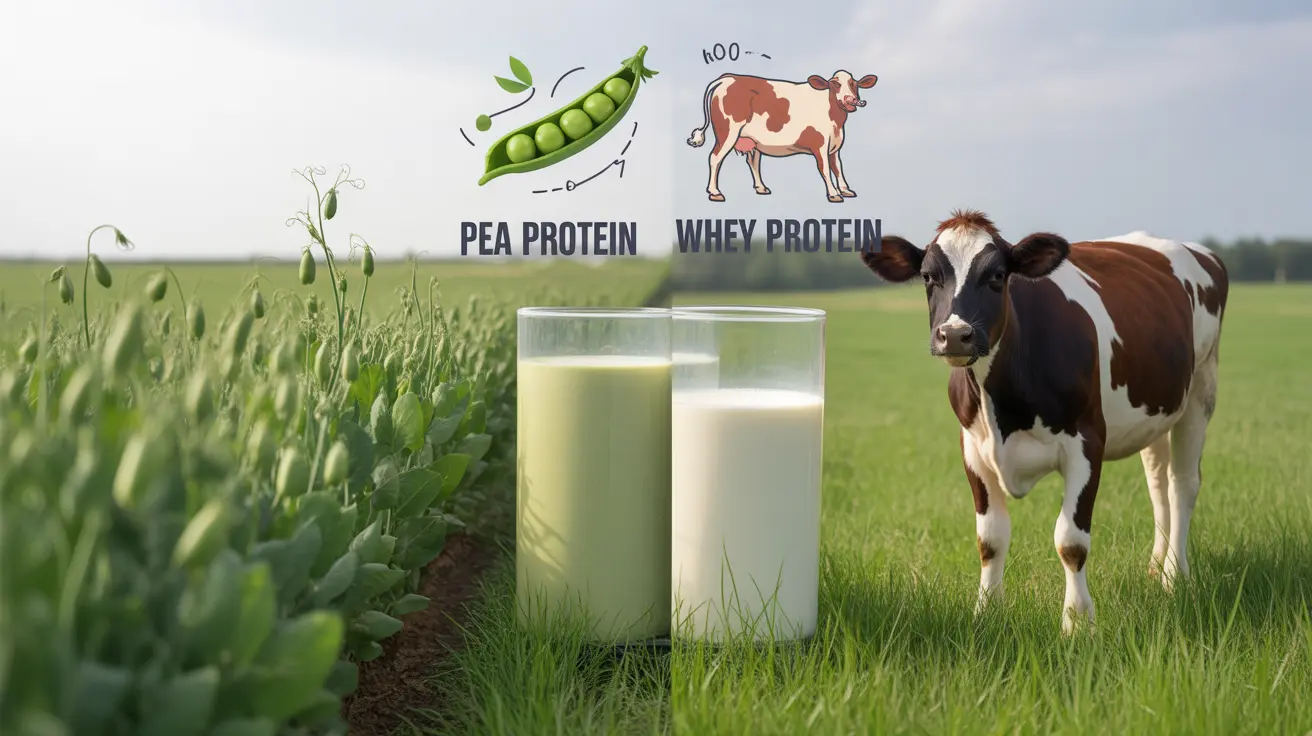Choosing between pea protein and whey protein can significantly impact your fitness journey and overall health goals. As plant-based alternatives gain popularity, understanding the key differences between these protein sources has become increasingly important for both athletes and health-conscious individuals.
In this comprehensive guide, we'll explore how pea protein and whey protein compare across various factors, including their nutritional profiles, muscle-building potential, digestibility, and suitability for different dietary needs.
Nutritional Composition and Amino Acid Profiles
Whey protein is derived from milk and is renowned for its complete amino acid profile, containing all nine essential amino acids in optimal proportions. It's particularly rich in leucine, a crucial amino acid for muscle protein synthesis.
Pea protein, extracted from yellow split peas, offers a surprisingly robust amino acid profile. While slightly lower in methionine, it contains significant amounts of branched-chain amino acids (BCAAs) and is particularly rich in lysine, making it a valuable plant-based alternative.
Muscle Building and Recovery Benefits
Research shows that both proteins can effectively support muscle growth and recovery, though they work slightly differently. Whey protein is quickly absorbed, making it ideal for post-workout consumption when rapid protein delivery is desired.
Pea protein, while absorbed more gradually, has demonstrated comparable results in muscle gain and strength improvements when consumed as part of a regular resistance training program. Its slower digestion rate may offer advantages for sustained amino acid delivery.
Digestibility and Absorption
Whey Protein Characteristics
Whey is known for its rapid digestion and absorption, typically reaching the bloodstream within 30 minutes to an hour after consumption. This quick absorption can be beneficial for immediate post-exercise recovery.
Pea Protein Characteristics
Pea protein digests more slowly than whey, which can help maintain satiety longer and provide a steady release of amino acids. This characteristic makes it particularly suitable for meal replacement or between-meal supplementation.
Special Dietary Considerations
Pea protein holds distinct advantages for certain populations. It's naturally dairy-free, making it suitable for those with lactose intolerance or milk allergies. It's also vegan-friendly and typically free from common allergens.
Whey protein, while highly effective, may not be suitable for those with dairy sensitivities or those following a plant-based diet. However, it remains a popular choice for its proven effectiveness and complete amino acid profile.
Health Benefits Beyond Muscle Building
Both proteins offer unique health benefits. Pea protein is naturally cholesterol-free and rich in iron, making it beneficial for overall health and particularly valuable for those following plant-based diets.
Whey protein contains beneficial compounds like lactoferrin and immunoglobulins, which can support immune function. It's also been associated with improved blood sugar control and reduced blood pressure.
Frequently Asked Questions
What are the main differences between pea protein and whey protein in terms of muscle building and recovery?
While both proteins support muscle building, whey protein is faster-absorbing and has a slightly higher leucine content. Pea protein, though slower to digest, has shown comparable results in muscle growth and recovery when consumed consistently alongside resistance training.
Is pea protein a complete protein like whey, and how do their amino acid profiles compare?
Whey protein is a complete protein containing all essential amino acids in optimal ratios. Pea protein is nearly complete but slightly lower in methionine. However, it compensates with high levels of other essential amino acids, particularly lysine and arginine.
Which protein is better for people with allergies or following a vegan diet: pea protein or whey protein?
Pea protein is the better choice for those with dairy allergies or following a vegan diet as it's plant-based and naturally free from common allergens. Whey protein, being dairy-derived, isn't suitable for vegans or those with milk allergies.
How does the digestion speed of pea protein versus whey protein affect satiety and muscle growth?
Whey protein's rapid digestion makes it ideal for immediate post-workout nutrition. Pea protein's slower digestion rate can promote longer-lasting satiety and provide a sustained release of amino acids, which may benefit muscle protein synthesis over extended periods.
What are the nutritional and health benefits of choosing pea protein over whey protein?
Pea protein offers several unique benefits, including being cholesterol-free, rich in iron, and naturally allergen-friendly. It's also environmentally sustainable and suitable for those following plant-based diets while still providing effective protein supplementation for muscle building and recovery.




